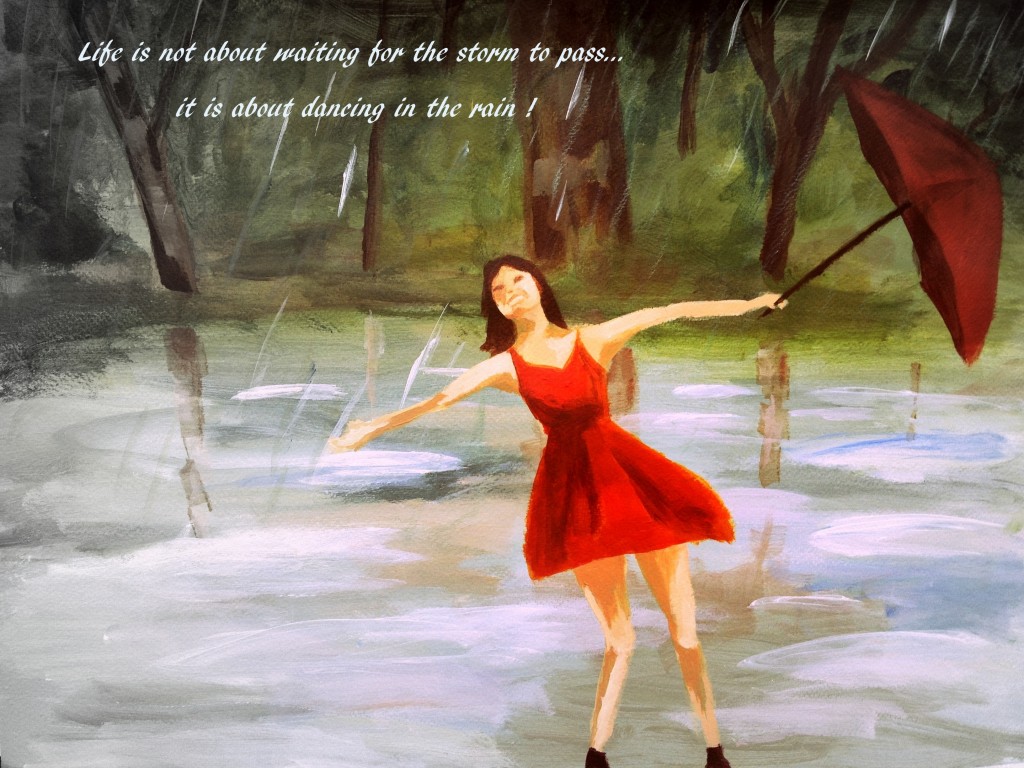“If only I lived in a warmer place, I would be so much happier”
One of the most pervasive misconceptions about happiness that I encounter is that weather and climate strongly influence happiness. It is a persistent beliefs, and even in the view of evidence, I typically fail to persuade people of the opposite. Let me put it out there, loud and clear: no, moving to a place with better weather will not make you happier.
Why is this – admittedly, counterintuitive – statement true?
Two phenomena explain why. The first one: focus illusion.
Focus illusion
‘Focus illusion’ is the phenomenon that when people evaluate two alternative scenarios – say, living in Northern and in Southern Europe – they only focus on one element. Amsterdam is grey and rainy, while Barcelona is sunny and warm, hence life in Barcelona must be better.
But life is made up from a lot more than the weather. A day in Amsterdam doesn’t only involve a rainy bike ride to the office. It may also include a long meeting with clients, a backlog of work emails to clear, catching some friends for a few drinks, and watching an episode of your favourite series before falling asleep. A day in Barcelona may start with a commute by bus through morning traffic, and then elapse in exactly the same way as one in Amsterdam. That massively reduces the impact of weather!
A famous study by Nobel Prize winner Daniel Kahneman and co-author David Schkade backs up the ‘focus illusion’. For their study – nicely titled ‘Does living in California make people happy’ – they asked students in the US Midwest (Michigan and Ohio) and in Southern California to evaluate either their own life satisfaction, or the life satisfaction of a student in the other region.
Both Californians and Midwesterners predicted Californians to be happier, and students’ ratings suggested that the better climate would contribute to higher happiness levels. However, there were no discernable difference in both the happiness levels found and the contribution of climate to those happiness levels.
As Kahneman and Schkade phrase the focus illusion they found: “Easily observed and distinctive differences between locations are given more weight in such judgments than they will have in reality.” Overall, academic research indicates that other factors – primarily, social relations, work and financial situation, and health, have a lot larger influence on happiness.
Adaptation
But now say you’re a person who is a lot more sensitive to the weather than the average person. Say that you are meteopathic, sensitive to temperatures, or suffer from seasonal affective disorder (SAD, also known as winter depression). Even in those cases, moving to a place with a more suitable climate may result in a bit more comfort, it may not meaningfully affect your longer-term quality of life.
‘Adaptation’ is the reason why. When something changes in our life – say, we get a new car – it is amazing in the beginning. The first few rides are wonderful. But over time, the novelty wears off. And after a few months, a great new car is not a source of satisfaction anymore.
This adaptation affect is very strong, and it is one of the reasons why we always ‘need’ more material goods and experiences, running the ‘hedonic treadmill’. A seminal study by Brickman et al., a classic in social psychology, shows how strong the effect can be. The scholars study small groups of paralyzed accident victims, lottery winners, as well as a control group. As time passed, both lottery winners and people getting paralyzed in an accident adapted to their changing situation and returned to their previous level of happiness.
By extension: if you move from Amsterdam to Barcelona or from the Midwest to California, you’ll benefit in the first three months or so, but afterwards it won’t make a difference anymore. No, warmer weather really won’t make you any happier.

